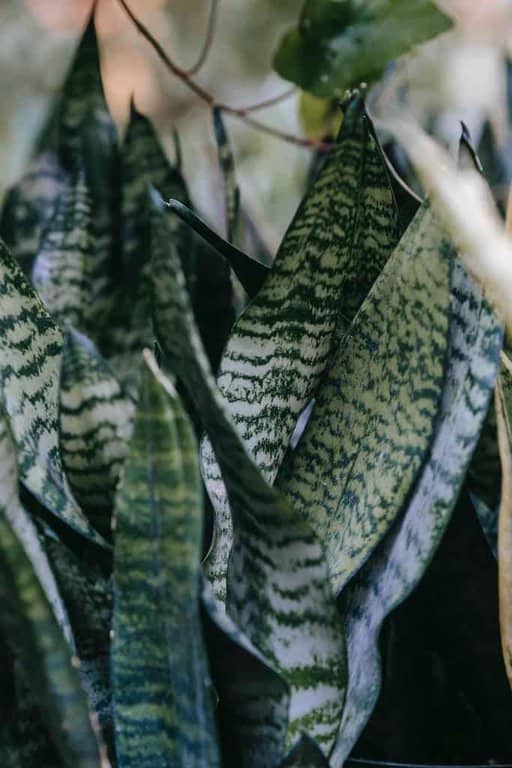Indoor air quality is an important aspect of creating a healthy living environment. We spend a lot of our time indoors, and the air we breathe can have a significant impact on our health and wellbeing. Poor indoor air quality can cause a range of health issues, including headaches, fatigue, allergies, and asthma. One way to improve indoor air quality is by incorporating air-filtering plants into your living space. In this blog post, we’ll explore some of the best plants for improving indoor air quality.
Spider Plant
Spider plants are a popular choice for indoor air filtration. They are easy to care for and are excellent at removing harmful toxins such as formaldehyde, benzene, and carbon monoxide from the air. Spider plants are also great for removing allergens, making them a perfect addition to homes with allergy sufferers.
Spider plants are low maintenance and can thrive in a variety of indoor environments. They prefer bright, indirect light and should be watered regularly but not overwatered. Spider plants are also excellent at reproducing, so you can easily propagate them and create more plants for your home.
Peace Lily
Peace lilies are a beautiful addition to any living space and are known for their ability to remove toxins from the air. They are particularly good at removing formaldehyde, benzene, and trichloroethylene. Peace lilies are also excellent at removing mold spores from the air, making them a perfect choice for homes with moisture issues.
Peace lilies prefer bright, indirect light and should be watered regularly. They are also sensitive to overwatering, so it’s essential to let the soil dry out slightly between watering. Peace lilies are also poisonous to pets, so if you have pets in your home, you should keep peace lilies out of their reach.
Bamboo Palm
Bamboo palms are a great choice for larger indoor spaces, such as living rooms or offices. They are excellent at removing formaldehyde, benzene, and trichloroethylene from the air. Bamboo palms are also great for removing airborne allergens, making them a perfect choice for allergy sufferers.
Bamboo palms prefer bright, indirect light and should be watered regularly. They also prefer slightly humid environments, so you should consider misting them occasionally. Bamboo palms are also pet-friendly, making them a perfect choice for homes with pets.
Boston Fern
Boston ferns are an excellent choice for removing formaldehyde from the air. They are also great at removing other toxins such as benzene and xylene. Boston ferns are also great for removing airborne mold spores, making them a perfect choice for homes with moisture issues.
Boston ferns prefer bright, indirect light and should be watered regularly. They also prefer slightly humid environments, so you should consider misting them occasionally. Boston ferns are also pet-friendly, making them a perfect choice for homes with pets.
Rubber Plant
Rubber plants are a great choice for removing formaldehyde from the air. They are also excellent at removing other toxins such as benzene and carbon monoxide. Rubber plants are also great at removing airborne mold spores, making them a perfect choice for homes with moisture issues.
Rubber plants prefer bright, indirect light and should be watered regularly. They are also sensitive to overwatering, so it’s essential to let the soil dry out slightly between watering. Rubber plants are also pet-friendly, making them a perfect choice for homes with pets.
Dracaena
Dracaena is a large group of plants that are excellent at removing formaldehyde from the air. They are also great at removing other toxins such as benzene, trichloroethylene, and xylene. Dracaena is a perfect choice for larger indoor spaces, such as living rooms and offices. They are also available in a variety of sizes and shapes, making it easy to find the perfect Dracaena for your space.
Dracaena prefer bright, indirect light and should be watered regularly. They are also sensitive to overwatering, so it’s essential to let the soil dry out slightly between watering. Some varieties of Dracaena can be toxic to pets, so it’s important to research the specific type of Dracaena you plan to bring into your home.
Aloe Vera
Aloe vera is well known for its healing properties and is also a great air-filtering plant. Aloe vera is excellent at removing formaldehyde from the air, making it a perfect choice for homes with new furniture or flooring that can off-gas formaldehyde.
Aloe vera prefers bright, indirect light and should be watered sparingly. It’s important not to overwater aloe vera, as it can lead to root rot. Aloe vera is also pet-friendly, making it a great choice for homes with pets.
English Ivy
English ivy is a great choice for removing airborne mold spores from the air. It’s also excellent at removing formaldehyde and other toxins such as benzene and xylene. English ivy is a perfect choice for homes with moisture issues, as it can help improve the air quality and reduce the risk of mold growth.
English ivy prefers bright, indirect light and should be watered regularly. It’s important to keep the soil evenly moist, as English ivy is sensitive to both overwatering and underwatering. English ivy can be toxic to pets, so it’s important to keep it out of reach of pets.
Snake Plant
Snake plants are a popular choice for indoor air filtration. They are excellent at removing toxins such as formaldehyde, benzene, and xylene from the air. Snake plants are also great for improving indoor air quality, as they can help increase oxygen levels in your home.
Snake plants prefer bright, indirect light and should be watered sparingly. They are also sensitive to overwatering, so it’s important to let the soil dry out between watering. Snake plants are also pet-friendly, making them a great choice for homes with pets.
Golden Pothos
Golden pothos is a great choice for removing formaldehyde from the air. It’s also excellent at removing other toxins such as benzene and xylene. Golden pothos is a perfect choice for homes with new furniture or flooring that can off-gas formaldehyde.
Golden pothos prefer bright, indirect light and should be watered regularly. They are also sensitive to overwatering, so it’s important to let the soil dry out between watering. Golden pothos can be toxic to pets, so it’s important to keep it out of reach of pets.
Incorporating air-filtering plants into your living space is an excellent way to improve indoor air quality. The plants listed above are some of the best air-filtering plants for removing toxins from the air, improving oxygen levels, and reducing allergens. By adding a few of these plants to your home, you can create a healthier living environment for you and your family. Remember to research the specific care requirements for each plant, as they all have different preferences for light, water, and humidity.

